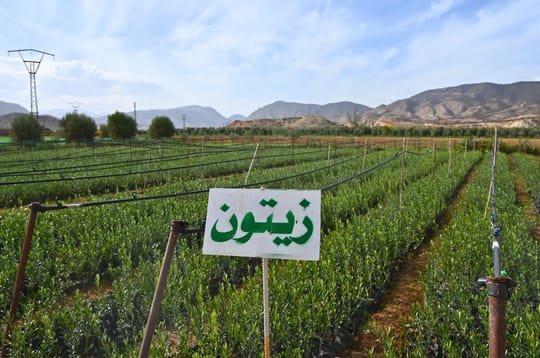Celebrating World Olive Day: A Symbol of Peace, Prosperity, and Sustainability

Olive trees can produce fruit for hundreds to thousands of years. The same trees that existed in ancient times continue to bear olives in the modern world, acting as a symbol of resilience and consistency. Today, World Olive Day 2025, marks an opportunity to recognize the enduring importance of olive trees in cultures, economies, and ecosystems worldwide. While olives have long held symbolic meaning across civilizations, representing peace, prosperity, and resilience, their practical value in addressing contemporary challenges deserves equal recognition.
In Morocco, olive trees represent both cultural heritage and economic opportunity. Covering 65% of the country’s fruit tree landscape, olives are the nation’s most widely cultivated crop and contribute significantly to the agricultural economy. Despite this extensive cultivation, Morocco faces persistent challenges in maximizing the sector’s potential. High production costs, limited processing capacity, and inadequate export infrastructure have constrained the country’s ability to compete in international olive markets.
The High Atlas Foundation (HAF) continues to take significant steps to address these challenges while advancing environmental sustainability. Since 2024, HAF has planted 1,815,579 olive trees in Morocco, supporting 3,346 farming families and rural communities. This large-scale initiative goes beyond simple tree planting, representing a comprehensive approach to sustainable agricultural development.
The program addresses multiple objectives simultaneously. Olive trees provide crucial environmental services, including erosion prevention, water management, and soil restoration. They are particularly well-adapted to Morocco’s diverse climate conditions and contribute to landscape restoration in degraded areas. Additionally, olive trees function as effective carbon sinks, with mature trees absorbing approximately 25 pounds of CO2 annually.
The scale and long-term vision of olive tree planting is notable. They require several years before reaching commercial productivity, yet they continue producing for centuries. This makes olive cultivation an intergenerational investment that will shape Morocco’s agricultural landscape and rural economies well into the future.
On this World Olive Day, we recognize that sustainable development requires practical solutions that align economic needs with environmental goals. HAF’s olive planting initiative demonstrates how traditional agriculture can be revitalized through innovative carbon mitigation mechanisms and a commitment to environmental stewardship. More than anything, HAF’s success reflects the dedication of Moroccan farming communities and the potential for agriculture to serve as a foundation for both economic development and climate action.